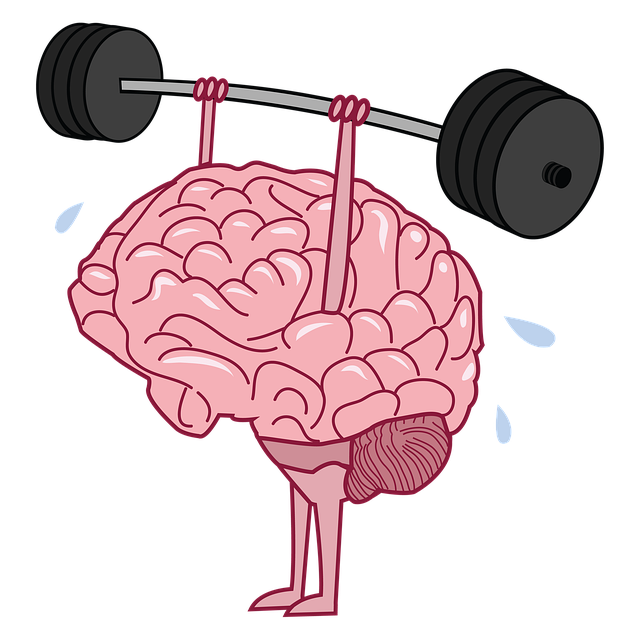Louisville Adolescent and Teen Therapy utilizes comprehensive data analysis, combining qualitative and quantitative methods, to understand and address teen mental health trends. Through statistical tools, predictive modeling, and trend identification, they develop personalized treatment plans, optimize resource allocation, and prevent provider burnout. This data-driven approach enhances care accessibility, improves outcomes, and empowers community support for adolescent mental wellness, while navigating data privacy and confidentiality challenges.
Mental health data analysis has emerged as a powerful tool for understanding and improving youth well-being. This article explores the intricate process of analyzing and interpreting mental health data, shedding light on its significance in identifying trends and enhancing care. Through a case study focusing on Louisville’s adolescent therapy landscape, we delve into the role of statistics in uncovering valuable insights. Additionally, it highlights practical techniques for interpreting treatment outcomes while navigating ethical considerations related to data privacy. The ultimate goal is to demonstrate how data-driven approaches can revolutionize mental health services, particularly through successful models like the Louisville Adolescent and Teen Therapy Program.
- Understanding Mental Health Data: A Foundation for Analysis
- The Role of Statistics in Uncovering Teen Therapy Trends in Louisville
- Techniques for Interpreting Adolescent Treatment Outcomes
- Challenges and Ethical Considerations in Data Privacy and Mental Health Research
- Utilizing Data to Improve Access and Quality of Care: The Louisville Adolescent and Teen Therapy Model
Understanding Mental Health Data: A Foundation for Analysis

Understanding mental health data is a crucial foundation for effective analysis and interpretation. This involves delving into various metrics and indicators that reflect an individual’s or population’s psychological well-being. At Louisville Adolescent and Teen Therapy, professionals utilize comprehensive assessments and surveys to gather insights into common mental health challenges among adolescents and teenagers. By collecting data on symptoms, behaviors, and contextual factors, therapists can identify trends and patterns that inform personalized treatment plans.
Analyzing these data requires a nuanced approach, considering both qualitative and quantitative information. Techniques such as statistical analysis, predictive modeling, and sentiment analysis enable professionals to uncover meaningful insights. For instance, identifying correlations between stress reduction methods and improved mental health outcomes can guide evidence-based practice. Moreover, effective risk management planning for mental health professionals leverages this data to anticipate potential crises, implement proactive strategies, and ensure a more responsive and supportive care environment.
The Role of Statistics in Uncovering Teen Therapy Trends in Louisville

In the realm of Louisville Adolescent and Teen Therapy, statistics play a pivotal role in uncovering trends and patterns that can shape mental health services. By analyzing data, researchers and professionals gain valuable insights into the prevalence of various mental health issues among teens, the effectiveness of different therapeutic approaches, and demographic factors influencing treatment-seeking behaviors. This data-driven approach is essential for identifying areas where resources may be allocated more effectively to address growing concerns such as anxiety, depression, and substance abuse.
The application of statistics in this context extends beyond mere numbers; it enables the development of evidence-based practices and burnout prevention strategies for healthcare providers. Crisis intervention guidance can be tailored based on these findings, ensuring that teens receive the most appropriate care. For instance, identifying peak periods for mental health crises can help community organizations and schools implement proactive measures to support young individuals’ mental wellness.
Techniques for Interpreting Adolescent Treatment Outcomes

When analyzing treatment outcomes for adolescents, a multifaceted approach is often necessary to gain comprehensive insights. This involves employing sophisticated techniques tailored to the unique needs and challenges faced by young individuals. For instance, at Louisville Adolescent and Teen Therapy, professionals utilize advanced data analytics to track progress over time, identifying key markers that indicate successful treatment. By closely examining response rates to various therapeutic interventions, therapists can pinpoint effective strategies for individual clients.
Techniques such as trend analysis and comparative metrics help in understanding what works best for different demographics. This data-driven approach not only allows for personalized treatment plans but also contributes to the development of evidence-based practices. Moreover, integrating Self-Care Routine Development for Better Mental Health and Mental Wellness Coaching Programs can provide additional layers of support, fostering resilience and long-term mental wellness. Public Awareness Campaigns Development can further enhance these efforts by educating communities about adolescent mental health, reducing stigma, and encouraging early intervention.
Challenges and Ethical Considerations in Data Privacy and Mental Health Research

The landscape of mental health research is evolving rapidly with advancements in data analytics, offering valuable insights into adolescent and teen therapy in Louisville and beyond. However, navigating the intricate web of data privacy presents significant challenges. As researchers delve into sensitive information to identify patterns and trends, ensuring ethical practices becomes paramount. The protection of individuals’ personal data is crucial, especially when exploring mental health issues that can be highly stigmatized.
In this context, balancing the benefits of data analysis with maintaining confidentiality is an art. Researchers must adhere to strict protocols, such as anonymization techniques, secure data storage, and obtaining informed consent from participants or their guardians. Additionally, exploring burnout prevention strategies for healthcare providers involved in these studies is essential to ensure sustainable practice and avoid potential ethical pitfalls associated with prolonged exposure to sensitive data.
Utilizing Data to Improve Access and Quality of Care: The Louisville Adolescent and Teen Therapy Model

In today’s digital era, leveraging mental health data analysis has emerged as a powerful tool to enhance access and quality of care, especially in communities like Louisville. The Louisville Adolescent and Teen Therapy Model serves as an exemplary case study. By meticulously collecting and interpreting data, this model identifies pressing mental health needs within the adolescent and teen population. Armed with this insight, the program strategically allocates resources, personalizes treatment plans, and improves overall service delivery.
One notable aspect of this approach is the integration of community outreach programs and self-care practices alongside traditional therapy sessions. This holistic strategy not only addresses individual mental health concerns but also fosters a supportive network. Furthermore, compassion cultivation practices play a pivotal role in building resilience and promoting well-being. The Louisville Adolescent and Teen Therapy Model’s data-driven approach has led to significant improvements, demonstrating the potential for similar initiatives to revolutionize mental healthcare across communities.
Mental health data analysis plays a pivotal role in understanding adolescent therapy trends and improving care. By examining statistical patterns, researchers can identify effective treatment modalities, as illustrated by the success of the Louisville Adolescent and Teen Therapy Model. Through rigorous interpretation and addressing ethical considerations, particularly regarding data privacy, we can harness the power of data to enhance access and quality of mental health services for young people. This holistic approach ensures that evidence-based practices are implemented, empowering professionals to make informed decisions and ultimately fostering better outcomes for Louisville’s adolescents.














